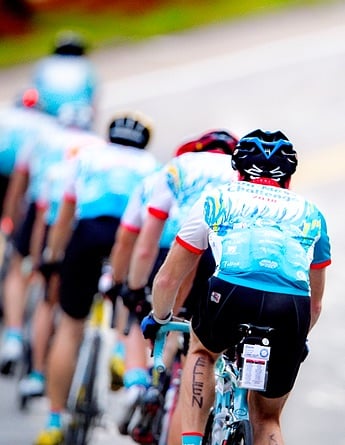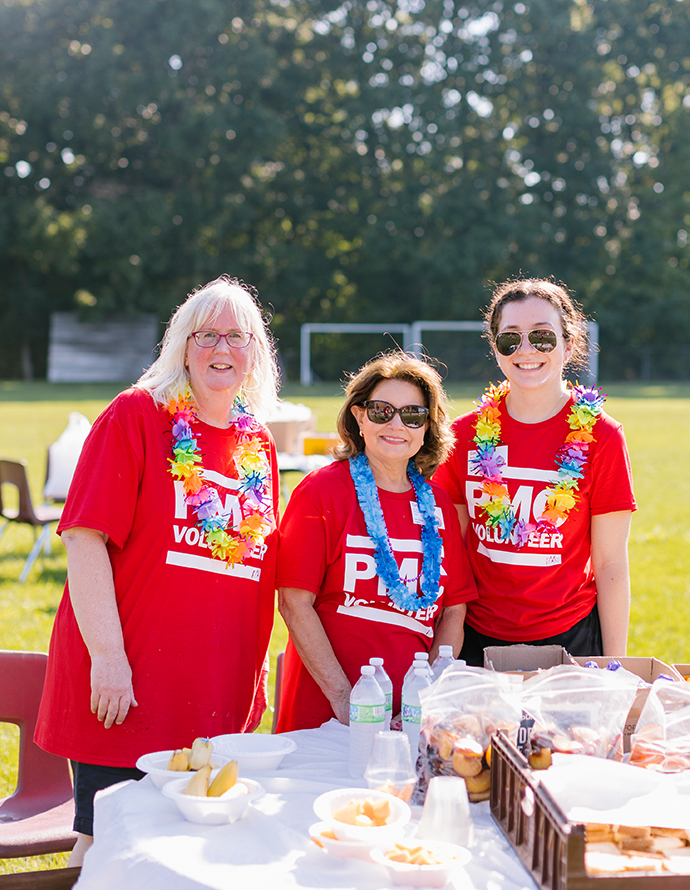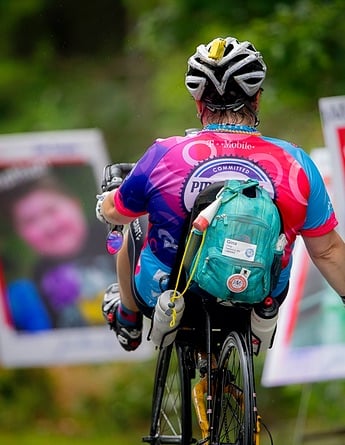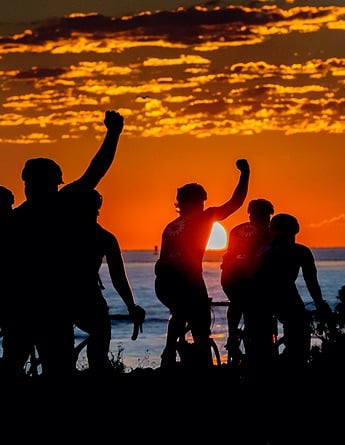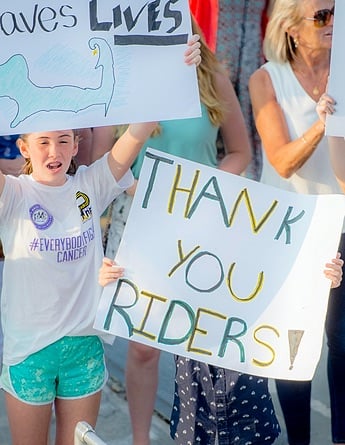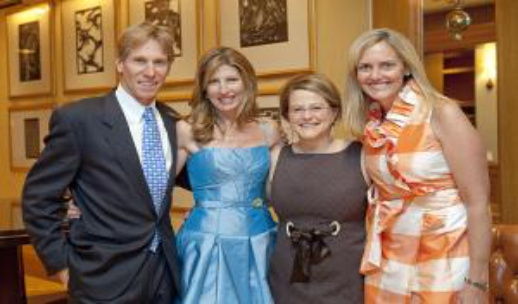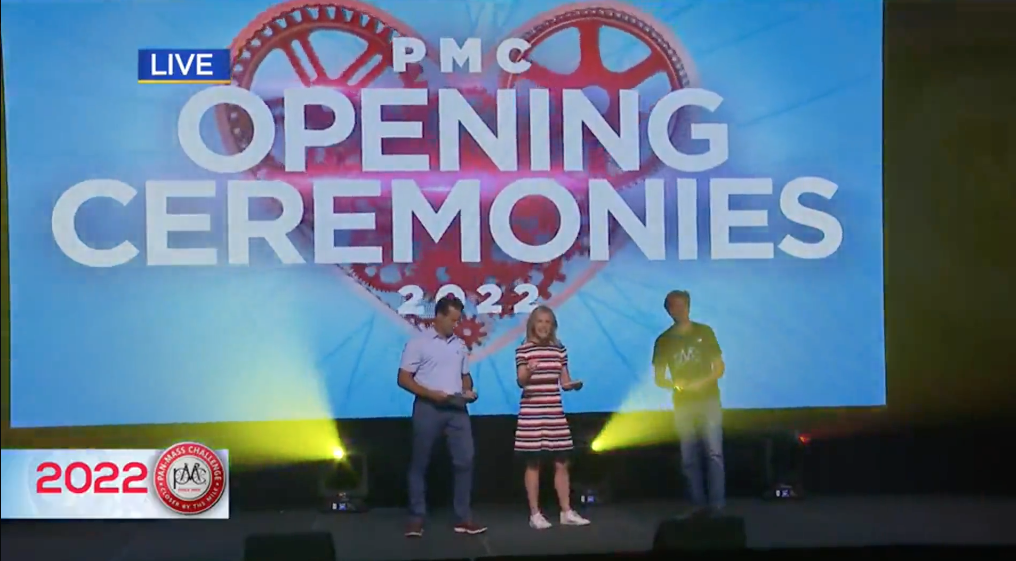Here is the transcript of Billy's introduction as well as his commencement speech.
Introduction/Bio:
"Billy Starr - founder / executive director, Pan-Mass Challenge
His passion and love of sports and the outdoors was honed during his college years at the University of Denver, but it was in grief that Billy Starr found his inspiration and personal mission. When his mother Betty died of melanoma at 49, the New England native set aside his dream of backpacking the world after graduation to funnel his emotions into a trek with friends along the Appalachian Trail. From the challenge of planning the pace, gear and food, as well as urging his group on both emotionally and physically, emerged the leadership and motivational characteristics that would later define his life’s work.
What emerged was a leader capable of shouldering heavy loads, both physically and mentally, and a motivator capable of keeping others on track and focused on the challenges ahead. In 1980, Billy Starr and dozens of cycling buddies set off for a weekend ride to the Cape. Not content to push themselves physically, they challenged themselves to raise money to combat cancer. By Sunday, the fundamentals and inspiration of what is now the Pan-Mass Challenge were in place.
Thirty-four years later, that annual weekend ride has turned into an event that draws 5,500 cyclists from 36 states and eight countries, and has raised and contributed $414 million to cancer research. Today’s Pan-Mass Challenge raises more money than any other athletic fundraising event in the country, generates half of the Jimmy Fund's annual revenue and is Dana-Farber's single largest contributor. The Pan-Mass Challenge – which proudly donates 100% of funds raised – has become the innovative fundraising model that charitable events have replicated across the country.
Billy Starr lives in Wellesley with his wife and two daughters. He is the recipient of Dana Farber’s Sidney Farber Medical Research Award and medal, and the Jimmy Fund's highest honor, the Thomas A. and Jean R. Yawkey Memorial Award for outstanding service. In 1997 a pedestrian bridge at Dana Farber was dedicated as the "Pan-Massachusetts Challenge Bridge to Progress" in honor of the Pan-Mass Challenge's contribution to cancer research."
Commencement Speech delivered by Dr. Billy Starr:
"I become a little self-conscious anytime I tell anyone how to lead their life. Nevertheless, I am going to offer up a simple guiding principle, though it is without doubt, a challenging one. If you have a passion for a particular pursuit never give up on that dream! Those pursuits that capture you heart and soul are seldom dealt out randomly by life. You have to find it yourself and figure out a way to seize it.
Some people can look back on their lives and know exactly how they got to where they are. I am one of them. But it was five years into the Pan-Mass Challenge before I began to fully grasp my own evolution. What I do today -- and much of the person I have become -- can be traced back to my mother’s death, at age 49, 40 years ago. I had just returned to Boston following my own graduation ceremonies in Colorado and walked in on my father crying in his bedroom, having just found out that my mother’s cancer diagnosis would be terminal. It was the first time I ever remember seeing my father cry. My father's tears would carry me like a raft into uncharted waters that would lead me through an extraordinary range of emotions and, ultimately, assure the personal growth that I could not then have imagined.
It was not in any sense an easy ride. For six years following her death in June 1974, I tried, unsuccessfully, to balance that sense of loss with what I thought should be the natural progression of adulthood. I earned a master’s degree in education and was fortunate enough to land jobs in journalism, sales and public relations in a time, like today, of economic recession. Still, while I found jobs I was committed to none of them. But between the spring of 1976 and 1977, I undertook two adventures that lit a fire in me that have yet to be extinguished.
The first was a 400-mile hike through Maine & NH on the Appalachian Trail. The second was a one-day 120-mile bike ride from Newton to Provincetown. Both events were similar in that they required planning, endurance, and, inevitably, a sense of humor. On these pillars, I found my calling, met thousands of kindred spirits and built a business that serves a vast public need.
We adults have to assume a lot of roles to succeed and too often, the nurturing of our souls gets short shrift. After the first PMC in September 1980, I realized I had found the way to nurture mine, and others as well. The letters I received from those who participated in the inaugural 1980 PMC confirmed that these people were seeking to fulfill what they saw as their obligation to society as well as to themselves.
I had found my way. I recognized that philanthropy- to give of oneself, to persevere and sometimes suffer for others -not only reaped benefits for society, but it made me, and others, feel good about ourselves. It was a win-win proposition. I had created a route across Massachusetts where this compassion that exists in all of us, could find a home. Once I understood my role, kind of a pied-piper of that compassion, I did the following:
I set ambitious goals; I involved my family and friends in my vision; I shared my progress with them and I put my ideas on paper and tested them in the field
Sometimes your work will test your commitment in ways you could never imagine. My big test came in 1984. The PMC was 5 years old. That year there were 366 riders and we donated $155,000 to the Jimmy Fund. It should have been remembered as a year of triumph and progress. But it was also the year of our first rider fatality. The accident occurred Saturday, thirty-five miles along the route. As I arrived, on bicycle, to the accident scene, I saw the young man flailing uncontrollably in the ambulance as paramedics tended to his head injury. This head trauma would soon prove fatal.
Over the course of that day, my staff and I were in touch with his family, the hospital, the police, the insurance companies, and the Jimmy Fund. While rumors circulated among the riders, most were unaware of the accident because this was a full 20 years before smart phones and we had yet to assemble as a group.
That same night, I conducted a brief ceremony acknowledging 15 cyclists who had ridden the PMC for all five years. In those days, I knew almost everybody and tended to adlib my speeches. I forgot to mention one deserving woman. Following the ceremony she tearfully criticized me for being so insensitive. I bit my lip and said nothing because she had no way of knowing how distracted I was by the events of the day. But the point was clear to me: my actions had an impact on people and no matter how carefully I planned, I could not completely control all the forces I had set in motion.
The following day I was informed that the young man had suffered irreversible brain damage and that, later, the family had made the painful decision to disconnect life support. That evening I returned home alone and disconsolate. I reflexively activated my answering machine. The voice greeting me was that of the deceased rider. He was a late registrant. He wanted me to know that he had all his pledge money collected. He looked forward to meeting me... I came undone. Two days later I attended the wake and met his father who, in his grief, held me responsible for the tragedy. His other son, who had volunteered at the PMC to support his brother, stood by me during an emotional service.
It was an intensely difficult period for me and the PMC. Yet I never doubted our mission. That may sound obvious given the current magnitude of the PMC. But back then the PMC was a small organization. Many of my staff were devastated by the loss and resigned their positions. We were vulnerable, as individuals and as an organization. Most eventually changed their minds, but when bad things happen to good people those in charge feel responsible -even if there was nothing they could have done.
This August the PMC will ride for the 35th time. We have now suffered two fatalities. The loss to these families is immeasurable. But what the PMC means to this region and our society can be measured. To date, more than 90,000 riders have ridden the PMC and $414 million has been contributed to the Dana-Farber Cancer Institute and used to save lives and fund critical research. Our mission is too vital to be deterred. Cancer causes one of every four deaths in the US. In a war that now takes 565,000 Americans every year, there is, unfortunately, also collateral damage suffered by those who would attempt to help the afflicted.
Triumph & Tragedy often walk hand in hand, in real life just as in the theatre. To cope effectively it is essential that you have a clear grasp of who you are and why you set out on a particular path. There is an enduring clarity of mind that becomes transcendent after you have ridden a bike 200 miles in the scorching heat or pouring rain to benefit cancer research. There may be complex or distracting events going on simultaneously, but the mission always rises above the fog of confusion.
We hear a lot about overnight success. There is no such thing. But we also, particularly in these trying economic times, hear a lot about failure. Society tends to rush to judgment by proclaiming winners and losers in neat packages. But life is not really like that. The deeds that comprise a person’s life do not bundle up so neatly. I have found that failure, or more accurately, not achieving one’s goal is often the best teacher and motivator. Most success was born of failure. Ideas evolve. They are not hatched. All progress scrapes and claws before it glides and soars.
That is why a genuine passion for your work is so vital. It is what keeps you going in the face of the inevitable naysayers and all the other obstacles on the road ahead.
My road has led me here today and I am honored to share the moment with so many future stars as they embark on new paths. Thank you for inviting me, and congratulations on climbing a significant hill on your ride through life. You have overcome one obstacle of what will be many. But each obstacle you overcome brings you one step closer to the gliding and soaring."
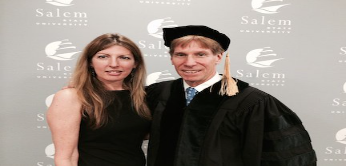
Meredith and Billy Starr - Salem St. University Graduate Studies Commencement 2014



